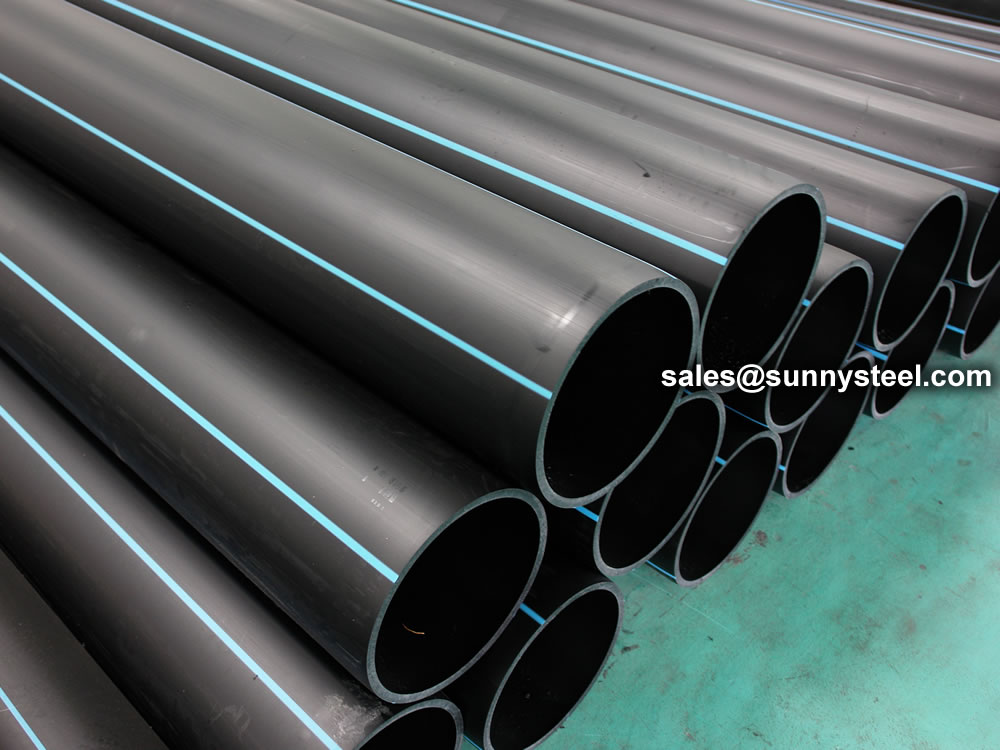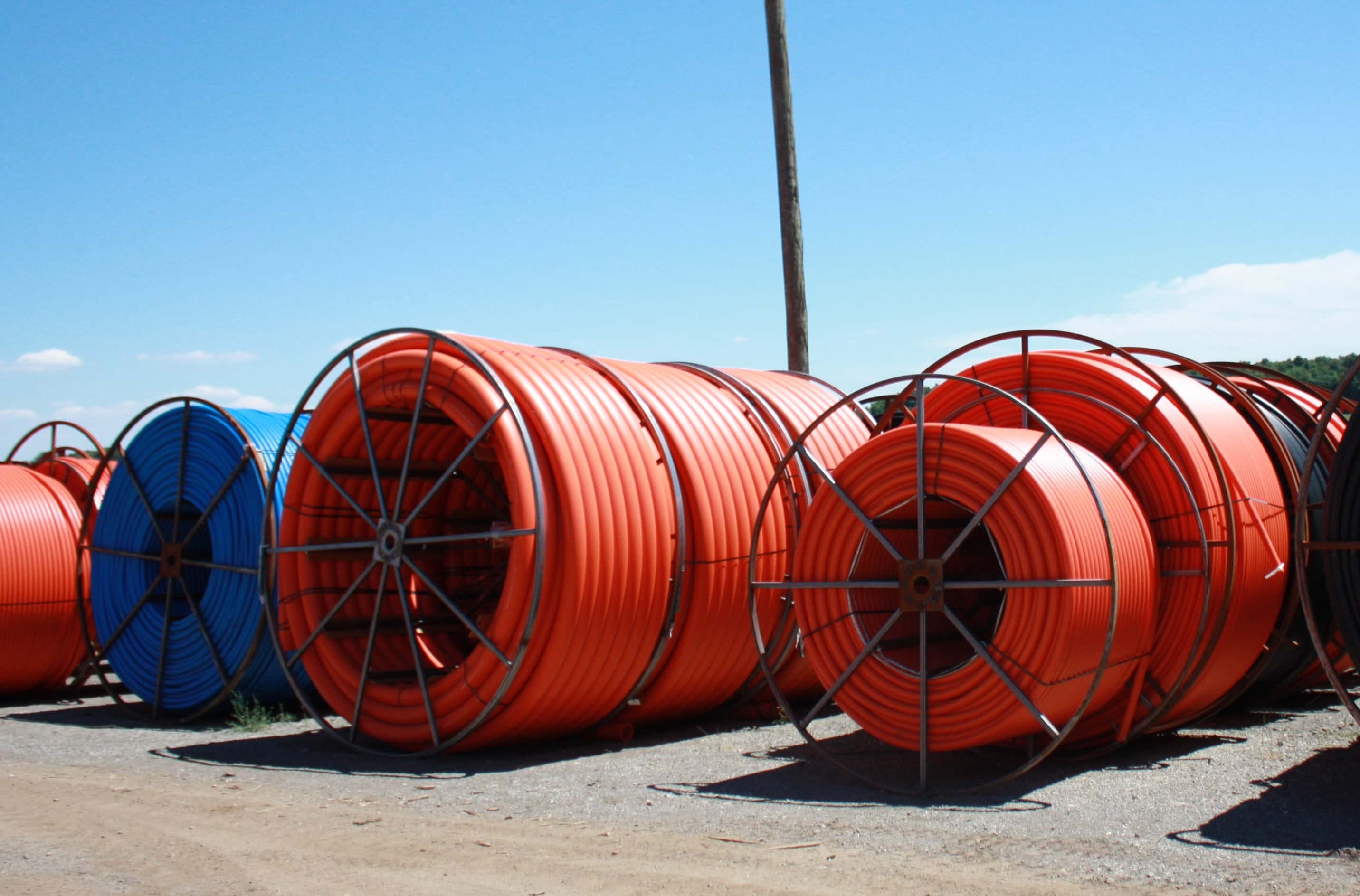Why Texas hdpe pipe manufacturer Is Dominating in Quality Production
Wiki Article
Recognizing the Secret Perks of HDPE Pipeline for Water and Wastewater Administration
Using HDPE pipe in water and wastewater management presents various benefits that merit consideration. Its remarkable sturdiness and lengthy life-span make it a recommended selection for several projects. In addition, the product's resistance to rust and chemical damage enhances its dependability in numerous atmospheres. The benefits extend beyond simply durability and resistance. American Plastics HDPE Pipe for Oilfield. Exploring its cost-effectiveness and environmental impact reveals also more compelling reasons for its prevalent fostering in contemporary facilitiesExceptional Toughness and Longevity

HDPE pipeline stands out for its exceptional resilience and durability, making it a recommended choice in water monitoring systems. Created from high-density polyethylene, these pipelines can withstand significant stress and stress and anxiety, ensuring reputable performance gradually. Their robust nature enables them to sustain severe environmental problems, consisting of temperature fluctuations and dirt motions, which can create other materials to stop working.
The life-span of HDPE pipelines frequently surpasses 50 years, supplying a cost-effective solution for municipalities and markets alike. Additionally, the material's lightweight buildings streamline installment, minimizing labor costs and timeframes. This toughness minimizes the demand for frequent repair services or replacements, even more boosting its financial charm.
In water administration applications, the reliability of HDPE pipelines suggests less disturbances and improved service continuity, making them essential to sustainable infrastructure growth. The combination of sturdiness and durability strengthens HDPE's role as a cornerstone in efficient water administration options.

Resistance to Deterioration and Chemical Damage
While many materials catch corrosion and chemical damages gradually, HDPE pipes exhibit impressive resistance, making them excellent for different water monitoring applications. This strength comes from the molecular structure of high-density polyethylene, which is inherently non-reactive and does not rust like metals or degrade from exposure to rough chemicals. Because of this, HDPE is highly reliable in atmospheres with hostile compounds, such as wastewater systems that may consist of acids, bases, and natural solvents.
In addition, HDPE pipes can withstand environmental aspects such as soil acidity and saline problems, better improving their viability for diverse applications (hdpe pipe in stock Midland TX). Their capability to maintain architectural stability over time lowers the danger of leaks and failures, which is important in making sure the safety and integrity of water circulation and wastewater administration systems. The resistance to deterioration and chemical damages noticeably contributes to the total effectiveness and durability of HDPE piping options.
Cost-Effectiveness and Economic Benefits
When taking into consideration the economic implications of water management systems, the cost-effectiveness of HDPE pipes ends up being obvious. These pipelines provide lower setup and maintenance costs compared to conventional products like metal or concrete. Their lightweight nature streamlines transportation and installment, leading to lowered labor expenses. In addition, HDPE pipes exhibit a long lifespan, frequently exceeding half a century, which equates to fewer substitutes and lasting financial savings.Furthermore, the resistance of HDPE to corrosion and chemical damages lessens the requirement additional reading for costly repair work and replacements. The pipes likewise sustain efficient water flow, view it now minimizing power costs related to pumping systems. By reducing leakages and water loss, HDPE pipes add to significant economic advantages for communities and industries alike. In general, the initial financial investment in HDPE piping can generate considerable financial returns over the lifespan of the water administration system, making it a prudent selection for lasting facilities advancement.
Environmental Sustainability and Lowered Influence

Convenience and Adaptability in Installation
As a result of their unique residential properties, HDPE pipes offer amazing versatility and adaptability in setup, making them suitable for a wide variety of applications. Their lightweight nature enables simpler handling and transport, minimizing labor costs and installment time. HDPE pipes can be bent and shaped to fit numerous terrains and job needs, which is especially useful in challenging environments.In addition, their resistance to rust and chemical damages enables installment in varied setups without the requirement for specialized protective finishings. The capability to fuse joints develops a constant, leak-free system, boosting the general honesty and reliability of the setup. HDPE's flexibility also accommodates ground movement, lowering the danger of damage in areas susceptible to shifting soil. Generally, these features make HDPE pipelines not only flexible but also a Bonuses preferred option for water and wastewater monitoring systems.
Regularly Asked Inquiries
Just How Does HDPE Pipe Contrast to PVC in Water Administration Applications?
HDPE pipe offers superior versatility, resistance to rust, and resilience compared to PVC. Its lighter weight assists in much easier installment, while its lengthy lifespan lowers substitute prices, making HDPE a recommended selection in water monitoring applications.What Is the Life Expectancy of HDPE Pipes Under Normal Problems?
Under regular problems, HDPE pipelines can have a life-span varying from 50 to 100 years. Their resilience and resistance to rust contribute to their long-term efficiency in different applications, making them a reliable option for infrastructure.Are HDPE Piping Recyclable After Their Life Span?
Yes, HDPE pipelines are recyclable after their service life. American Plastics HDPE Pipe for Oilfield. They can be processed and repurposed into new products, considerably reducing ecological impact and promoting sustainability within the industry, making them a green choice for piping optionsWhat Is the Installation Process for HDPE Pipeline?
The setup procedure for HDPE pipelines involves site prep work, trenching, pipeline blend or mechanical joining, backfilling, and pressure screening. Proper strategies ensure a resilient and effective system for moving water and wastewater efficiently.Can HDPE Pipes Be Used for Both Drinkable and Non-Potable Water Equipments?
Yes, HDPE pipes can be utilized for both drinkable and non-potable water systems. Their versatility, resilience, and resistance to corrosion make them appropriate for numerous applications, making certain secure and effective transport of water in different contexts.Report this wiki page